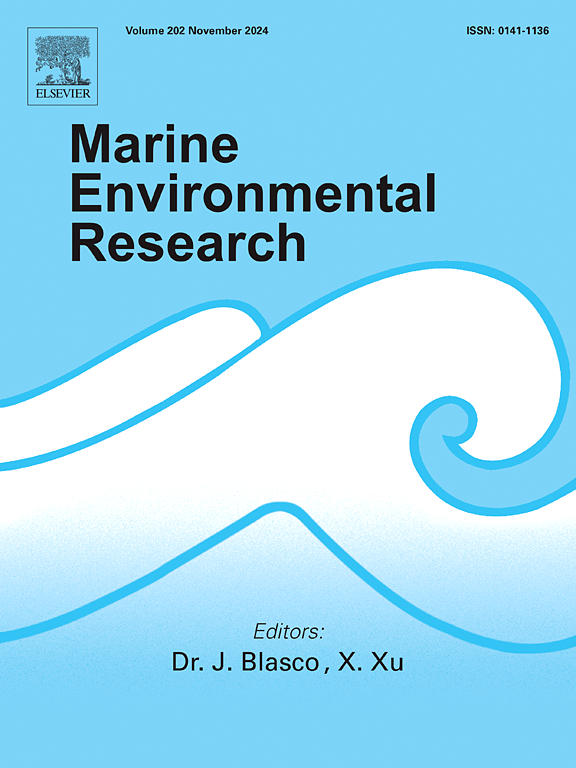Microbial-mediated carbon metabolism in the subtropical marine mangroves affected by shrimp pond discharge
IF 3
3区 环境科学与生态学
Q2 ENVIRONMENTAL SCIENCES
引用次数: 0
Abstract
Mangrove ecosystems exhibit high efficiency in carbon (C) sequestering within the global ecosystem. However, the rapid expansion of the shrimp farming industry poses a significant threat to these delicate ecosystems. The microbial mechanisms driving C metabolism in shrimp-affected sediments remain poorly understood. This study investigates the spatiotemporal dynamics of C metabolism-related microbial communities in shrimp pond and natural mangrove sediments in a subtropical region. Shrimp pond discharge altered soil properties, microbial diversity, and microbial stability, driven by factors such as salinity, sulfide, and total organic C (TOC). Metagenomic analyses reveals shifts in C degradation and oxidation, with a reduction in genes for cellulose and hemicellulose degradation. Microbial markers like Prolixibacteraceae and Nitrosopumilaceae reflect these changes. Co-occurrence network analysis indicates higher connectivity within shrimp pond groups, suggesting nutrient-driven changes in symbiotic relationships. PLS-PM analysis further confirms the interplay between microbial composition, nutrient levels, and C metabolism, with higher 16S rRNA operon copy numbers linked to increased C fixation. These findings demonstrate how shrimp pond discharge alters microbial networks and C metabolism, with implications for ecosystem resilience.

求助全文
约1分钟内获得全文
求助全文
来源期刊

Marine environmental research
环境科学-毒理学
CiteScore
5.90
自引率
3.00%
发文量
217
审稿时长
46 days
期刊介绍:
Marine Environmental Research publishes original research papers on chemical, physical, and biological interactions in the oceans and coastal waters. The journal serves as a forum for new information on biology, chemistry, and toxicology and syntheses that advance understanding of marine environmental processes.
Submission of multidisciplinary studies is encouraged. Studies that utilize experimental approaches to clarify the roles of anthropogenic and natural causes of changes in marine ecosystems are especially welcome, as are those studies that represent new developments of a theoretical or conceptual aspect of marine science. All papers published in this journal are reviewed by qualified peers prior to acceptance and publication. Examples of topics considered to be appropriate for the journal include, but are not limited to, the following:
– The extent, persistence, and consequences of change and the recovery from such change in natural marine systems
– The biochemical, physiological, and ecological consequences of contaminants to marine organisms and ecosystems
– The biogeochemistry of naturally occurring and anthropogenic substances
– Models that describe and predict the above processes
– Monitoring studies, to the extent that their results provide new information on functional processes
– Methodological papers describing improved quantitative techniques for the marine sciences.
 求助内容:
求助内容: 应助结果提醒方式:
应助结果提醒方式:


